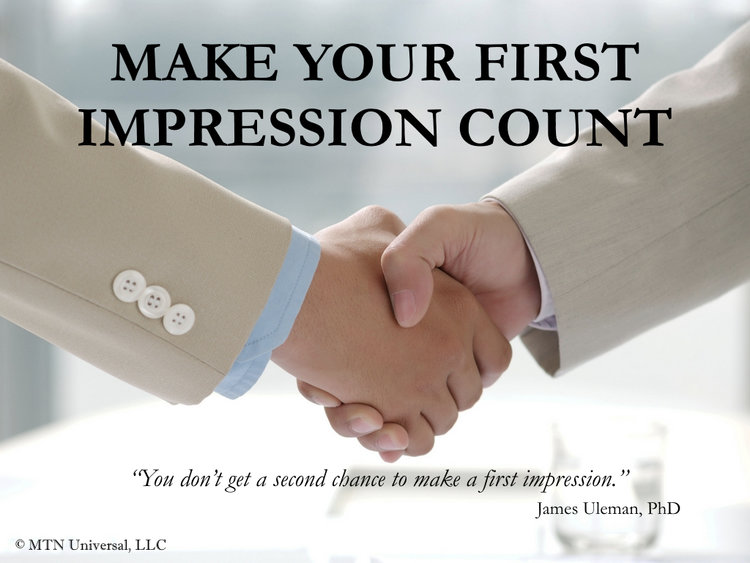First Impression: Ways to Make a Good one

First impressions are very initial opinions that people form the first Impression on the time they meet another person. Your first impression is the initial perception or judgment that someone forms about another person upon first meeting with them. This perception is based on various factors, which includes appearance, body language, tone of voice, and behavior.
Factors that Influence First Impression
Table of Contents
ToggleTheir are Several factors can influence your First Impression of someone, including their:
1) Nonverbal Communication, or Body Language
2) Physical Features
3) Clothing, Accessories, and Hairstyle
4) Voice and Speech
5) Surrounding Environment, like their office or Home
How to Make a Good First Impression

Making a good first impression is very crucial, particularly in some situations. If you are trying to make a Good First Impression on other people, So there are some strategies that can help to make a good first impression:
1) Be Aware of Your Body Language
Your non-verbal signals, such as gestures, posture, and facial expressions, often communicate more than your words. Maintain an open posture and make sure you keep your body angled toward the other person. Sit or stand straight and keep your arms at your sides and your legs straight.
Positive body language, like maintaining eye contact, smiling, and standing or sitting up straight, can convey confidence, openness, and attentiveness. If you are in a meeting than your back should be straight because of this you’ll look confident and it’ll put a good first impression.
2) Show your interest
Expressing interest and enthusiasm in what someone has to say can help to boost your chances of making a good impression. One way is to demonstrate this is through active listening, which involves nodding, maintaining eye contact, and providing verbal affirmations like “I see” or “That’s interesting.”
By actively showing your interest, so you can make the other person feel valued and respected, paving the way for more meaningful and productive interactions. Asking open-ended questions also which shows that you are engaged and genuinely curious about the other person’s thoughts and experiences. If you show your Interests by listening them then this will put a first impression of your’s.
3) Present Yourself Appropriately
Physical Appearance matters the most. The person you are meeting for the first time doesn’t know you, so your appearance is usually the first clue they have to go on. But, don’t worry! This doesn’t mean that you need to look like a model to create a strong and positive first impression.
It involves dressing suitably for the occasion, whether it’s a professional meeting, a social event, or a casual gathering. Beyond attire, it’s important to maintain a good hygiene and grooming. It is Equally crucial is your demeanor; being polite, respectful, and attentive reflects well on you. This is a important factor to put first impression on your colleagues, friends, and your Family members.
4) Check your facial expressions
If you are feeling Stressed, during a job interview or while speaking in public, try to maintain a relaxed expression. Researchers have found that people perceive people with happy expressions as more trustworthy. A happy facial expression will help you seem more trustworthy, or better than a neutral or subtly angry facial expression.
According to a Study participants not only rated people with happier expressions as more trustworthy, but they also said they’d be more likely to loan them money or vote for them. Your Facial Expressions matters the most in your daily life. because it will put a good first impression on your colleagues, Team mates, and Friends.
5) Consider Your Words
Consider your words. They may affirm someone or upset others. Your words may bring peace or create conflict. Words are powerful. If you’re in a meeting than you should take care of what are you saying because your words are the main factor that is important and it’ll put a main impact of your first impression.
You Should Consider your words because they can encourage or discourage others. Your words make a difference in your life and others. Words of parents can encourage children or cause doubt and fear. A husband’s words can affirm his wife or cause conflict. A words of students can affirm his/her Teacher.
6) Use Small Talk
Conversations are based on verbal give and take. It may help you to prepare questions some questions for the person you are meeting beforehand. Or, take a few minutes to learn something about them.
Small talk refers to the informal, polite, light conversations that people have when they don’t know each other very well. Such as social transactions generally focus on inconsequential topics. They’re an important factor to make connections, build rapport, and nurture relationships.
How to Overcome a Bad First Impression

If you want to Overcome your bad first impression so it can be challenging, but it’s definitely possible with the right approach. If you want to make a first impression that you should first focus on your words, personality, body language, choice of words. But First impressions are generally important, but everyone has an off day or makes mistakes in their social life situations. While it might be more of a challenge to change how you are perceived. There are many things that you can do to overcome a bad first impression. So, let’s talk about those factors to overcome your bad first impression.
1) Acknowledge Situation:
If appropriate, acknowledge the awkward or negative moment. A simple, “I feel like I might have come off the wrong way earlier,” can go a long way in showing self-awareness and sincerity.
2) Apologize:
If the bad impression resulted from something you did or said, a genuine apology can help. Be specific about what you’re apologizing for and express your desire to make amends.
3) Be Consistent:
Show that the negative behavior was an anomaly by consistently demonstrating your true, positive qualities. This consistency will help rebuild trust and reshape their perception of you over time.
4) Show Interest in the Others:
Engage with the person sincerely. Ask questions about their interests, listen actively, and show that you value their perspective. This can help shift the focus away from the initial impression and towards building a connection.
5) Highlight Your Strengths:
Find opportunities to demonstrate your skills, knowledge, or positive traits. This can help overshadow the initial impression and provide a more balanced view of who you are.
When someone asks you for your first impression of them, what was the best way to provide honest and genuine feedback
Here are a few possible responses:
1) “I find you to be warm and approachable. You have a friendly demeanor that makes others feel comfortable.”
2) “You come across as confident and assertive.
3) Your strong presence and clear communication make a lasting impression.”
4) “I noticed that you have a great sense of humor. You effortlessly bring lightness to conversations and make people around you laugh.”
5) “You strike me as someone who is intelligent and knowledgeable. Your insights and observations demonstrate a depth of understanding.”
6) “I perceive you as being very creative and artistic. Your unique style and expressive personality leave a lasting impression.”
Make your First Impression Count

A good first impression can provide many benefits. It offers you advantages, both short and long term, in your personal and professional life. The guidelines above can set you on the path to mastering the art of creating a good first impression. With attention to detail and practice, you can create an impression that lasts. For all the right reasons.
The first impression is a subconscious, but powerful tool to command respect and exude authority within minutes. Making a positive first impression can mean the difference between speaking in front of an audience that is eager to hear what you have to say or trying to convince an audience that you are credible and should be taken seriously. The phrases “dress for success” or “first impressions are everything” have been common mantras in the business world for decades.
Dos and Don’ts of First Impressions

Here are some general Factors to follow for a first meeting to ensure you make a good impression.
Don'ts of First Impression:
1) Be overbearing: This is often the result of talking too much and not listening enough. This creates the impression that you aren’t interested in the other person or what they have to say.
2) Interrupt when others talk: In many cultures, interrupting someone comes across as very rude. Not only does it communicate that you aren’t really listening, it often upsets the interrupted person.
3) Try too hard: Trying too hard is often obvious and makes you seem insincere. It can create the sense that you are prepared to do almost anything to create a good impression, even if that means overstating your abilities.
Do's of First Impression:
1) Read the room: Taking a moment to read a room gives you time to gather yourself. It can also guide your behavior by providing contextual information about levels of formality and language style.
2) Use different types of listening Understanding and using the different types of listening enable you to communicate more effectively. Other people will pick up on whether you are an effective listener or not. This will contribute to their impression of you.
3) Be optimistic: Being optimistic will contribute to a positive atmosphere. People enjoy being around optimists. A sense of cheerfulness will have a positive effect on the impression that you create.
Frequently Asked Question (FAQ's)
What are the 7 steps for a good first impression?
You can do this by following these eight strategies:
1) Be on time.
2) Present yourself appropriately.
3) Be yourself.
4) Have a winning smile.
5) Be open and confident.
6) Use small talk.
7) Be positive.
8) Be courteous and attentive.
What are the 5 positive first impressions?
If you want to make a positive first impression, then there are five etiquette-full things to strive to perfect: punctuality, appearance, handshake, smile, and conversation. You have ample opportunity to practice each of these every time you leave your home – wherever and whenever you are with other people.
How can I improve my body language for a better first impression?
If you want to improve body language, maintain good posture, make eye contact, smile genuinely, avoid crossing your arms, and lean slightly forward to show engagement. Use open gestures and nod in agreement to demonstrate active listening and interest.
What role does appearance play in a first impression?
Appearance plays a significant role in forming a first impression. Dressing appropriately for the occasion shows respect and professionalism, while good grooming and hygiene indicate attention to detail and self-respect. Your appearance can influence how others perceive your competence and credibility.
How can I make a good first impression in a job interview?
Arrive on time, dress professionally, offer a firm handshake, maintain eye contact, and smile. Be prepared with knowledge about the company, listen actively, and answer questions confidently. Show enthusiasm for the role and ask thoughtful questions about the position and organization.
Can first impressions be changed?
Yes, first impressions can be changed, but it requires consistent positive behavior and effort over time. Demonstrating reliability, kindness, and competence in subsequent interactions can help reshape the initial perception.
